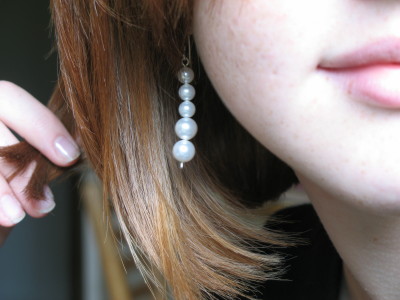Why does the phenomenon of eyebrows becoming bushy as we get older occur only in men?

The fate given to humankind is that the hair becomes thinner with age, but on the other hand, some men have their eyebrows bushy as they get older. Dermatologists Danilo del Campo and Marie Jin explain the mystery that 'only men' have the phenomenon that eyebrows, ear hair, and nose hair become bushy as they get older.
Why do men's eyebrows get bushier with age? | Live Science
It is common for both men and women that their hair becomes thinner as they get older, but there is a tendency for men to have thicker eyebrows, ear hair, and nose hair, and for women to have thinner hair.
According to Mr. Del Campo, the difference between men and women in facial hair during aging is caused by 'testosterone, ' which is said to be a representative of male hormones. According to a (PDF file) paper published by research teams at the University of Warsaw and Poznan Medical University in Poland in 2020, the effect of testosterone on hair follicles, the tissue that wraps hair roots, increases with age, but after menopause. It seems that the result was that it decreased only for women.

The root of all body hair, the hair root, finally falls out after three periods: a growth period called anagen, a dormant period called katagen, and a dormant period called telogen. And the reason why hair grows differently depending on the part of the body is that, according to Mr. Del Campo, the 'length of the period' of the growth period, telogen period, and dormancy period is different for each part. The growth period of hair roots is 2 to 7 years for the scalp, but only 30 days for the eyebrows. In other words, the eyebrows normally only grow for 30 days, so they can never be longer than 1 cm.
Testosterone is involved in the length of this period. According to Jin, the structure of hair follicles and the length of growth, telogen, and dormancy are affected by various hormones, and male hormones such as testosterone are 'growth and telogen' for body hair.・ It is said that it has an effect of 'changing the length of the dormant period'.
In the case of eyebrows, ear hair, and nose hair follicles, male hormones extend the growth, telogen, and dormancy periods, but strangely, in the case of hair follicles, the growth, telogen, and dormancy periods are shortened. Change will occur. It is unclear why the opposite reaction occurs between body hair and hair, but testosterone causes men to have thinner hair and thicker facial hair at the same time.

Of course, testosterone, which is a male hormone, is abundant in men and less in women, but in the case of women, it seems that the secretion of testosterone from the ovaries stops at the boundary of menopause, and even if men are over 70 years old, testosterone is used. While females continue to produce, menopause occurs around the age of 50, so the above-mentioned changes in hair occur only in males.
Related Posts:
in Science, Posted by darkhorse_log







